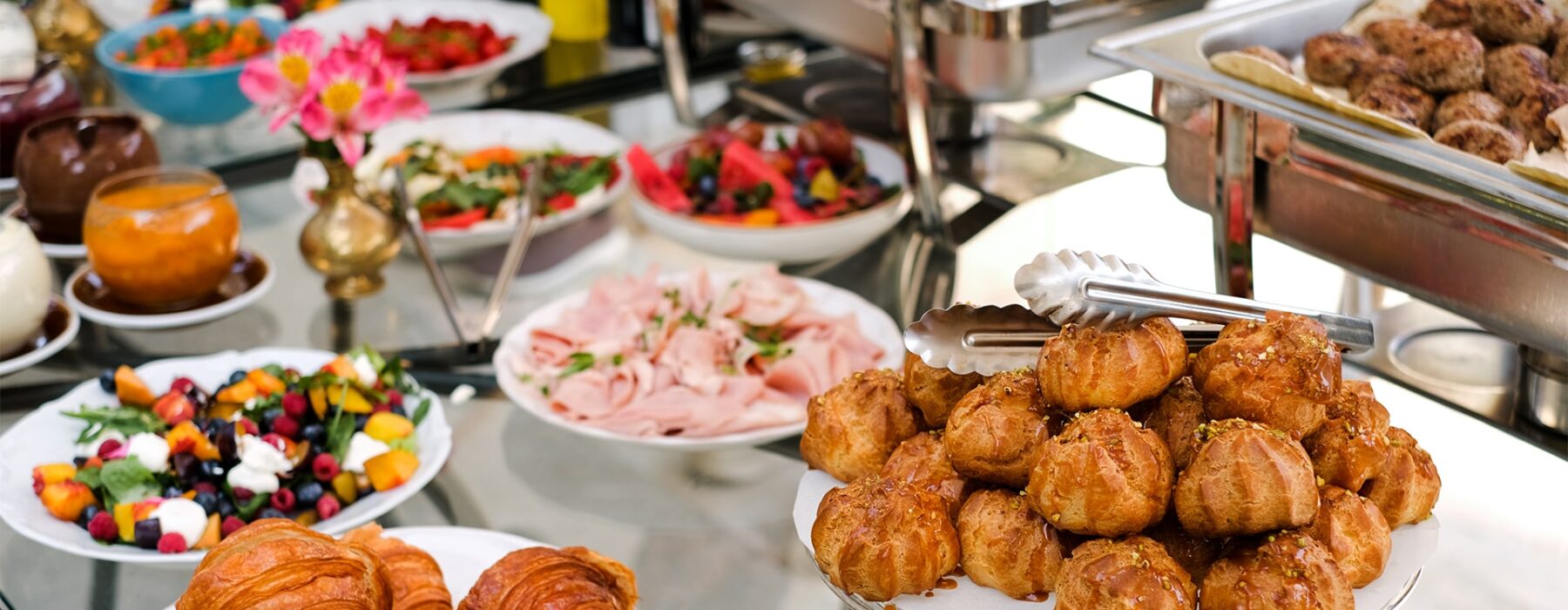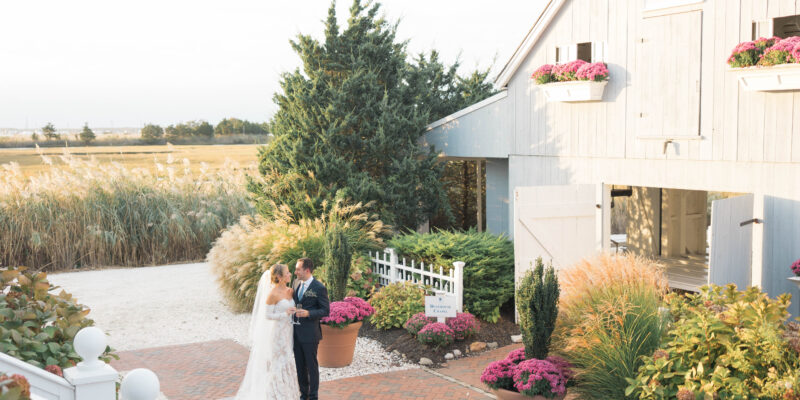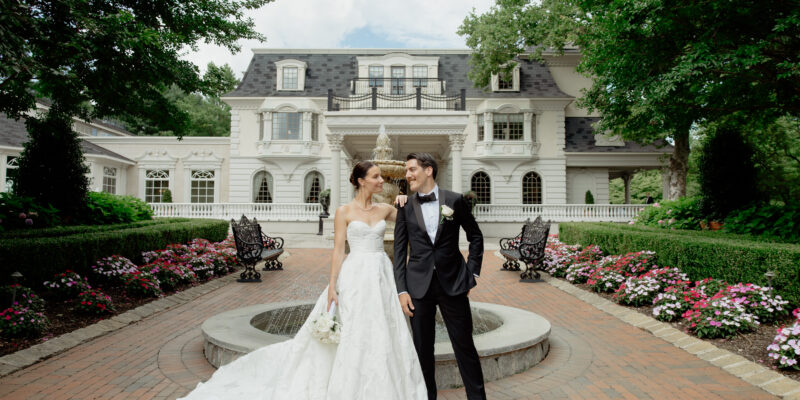In recent years, brunch catering has surged in popularity for private events, offering a delightful mix of delicious food and a relaxed, social atmosphere. Whether it’s a birthday, bridal shower, or family gathering, brunch adds a unique touch that elevates the celebration. With its blend of breakfast and lunch favorites, a well-planned brunch can transform any occasion into a memorable experience, where guests can enjoy both the food and the company in a casual yet elegant setting.
Why Brunch Catering is Perfect for Private Celebrations
Brunch is a versatile meal that appeals to a wide range of tastes and preferences, making it ideal for various private events. From birthdays and bridal showers to corporate gatherings and family reunions, brunch fits seamlessly into any celebration. The combination of sweet and savory dishes allows guests to indulge in their favorites, creating a relaxed, social environment. The late morning or early afternoon timing of brunch also sets a leisurely pace, encouraging guests to linger and enjoy the occasion.
Key Considerations When Planning Brunch Catering
Guest Preferences and Dietary Restrictions
Understanding the preferences and dietary restrictions of your guests is crucial when planning a brunch event. A diverse menu that accommodates various tastes, including vegan, vegetarian, and gluten-free options, ensures that everyone feels included. Taking the time to inquire about food allergies and restrictions beforehand can prevent any potential issues, allowing all guests to enjoy the meal comfortably.
Budget Planning
Budgeting for a brunch catering event requires balancing quality with cost-effectiveness. Start by determining how much you can afford to spend per guest and then work with your caterer to create a menu that fits within those parameters. It’s important to prioritize the quality of the food while also keeping an eye on the overall costs. Discussing your budget openly with your caterer can lead to creative solutions that meet both your financial and culinary goals.
Timing and Schedule
Timing is everything when it comes to brunch. The ideal time to host a brunch event is typically between 10 AM and 2 PM. Coordinating with your caterer to ensure that the food is fresh and served at the optimal time is essential for a smooth event. Additionally, it’s important to consider the pace of the event, allowing enough time for guests to arrive, mingle, and enjoy the meal without feeling rushed.
Venue Selection
Choosing the right venue for a brunch event involves considering both the size of your guest list and the type of atmosphere you want to create. Whether you opt for an indoor space with a cozy, intimate feel or an outdoor setting that allows for more natural light and a garden-like atmosphere, the venue should complement the relaxed nature of a brunch. For outdoor events, it’s also important to have a backup plan in case of inclement weather.
Choosing the Right Brunch Catering
Menu Customization
Customizing the menu is key to creating a memorable brunch experience. Work closely with your caterer to include a mix of classic brunch dishes, like eggs benedict and pancakes, alongside trendy options such as avocado toast or gourmet waffles. Don’t be afraid to incorporate personal touches or family favorites to make the menu truly unique. A well-rounded menu should also offer a variety of beverages, from mimosas and coffee to non-alcoholic options like fresh juices and herbal teas.
Tasting Sessions
Arranging a tasting session with your caterer is an important step in the planning process. This allows you to sample the food, discuss presentation preferences, and make any necessary adjustments before the event. During the tasting, pay attention to the quality of the ingredients, the balance of flavors, and the overall presentation. This is also an opportunity to ensure that the caterer understands and can execute your vision for the event.
Contracts and Terms
Before finalizing your catering arrangements, carefully review the contract terms. Make sure all details, including the menu, number of guests, service style, and any additional services like table settings or decorations, are clearly outlined. If there are any specific needs or concerns, negotiate these terms with the caterer to ensure everything is in line with your expectations. A well-drafted contract will help prevent misunderstandings and ensure a smooth, stress-free event.
Creative Brunch Menu Ideas for Private Celebrations
Classic Brunch Dishes
Classic brunch dishes like eggs benedict, fluffy pancakes, and French toast are always crowd-pleasers. These timeless options can be elevated with creative twists, such as adding unique sauces, incorporating seasonal ingredients, or presenting them in innovative ways. Including a variety of classic dishes ensures that there is something familiar and comforting for every guest.
Trendy and Unique Options
For a modern twist on brunch, consider incorporating trendy items like avocado toast topped with poached eggs, gourmet waffles with a variety of toppings, or a build-your-own smoothie bar. These Instagram-worthy dishes not only add visual appeal but also offer guests a chance to try something new and exciting. Including a mix of traditional and trendy options can make your brunch menu both nostalgic and contemporary.
Dietary-Friendly Options
With dietary restrictions becoming more common, it’s important to include options that cater to a diverse crowd. Vegan, vegetarian, and gluten-free dishes should be well-represented on the menu. Consider offering plant-based alternatives to traditional dishes, such as tofu scramble instead of eggs or gluten-free pancakes. Providing a variety of options ensures that all guests can enjoy the meal without compromise.
Beverage Pairings
No brunch is complete without a selection of beverages. Mimosas and freshly brewed coffee are brunch staples, but it’s also important to offer non-alcoholic options for those who prefer them. Consider serving a variety of fresh juices, herbal teas, and infused water to complement the meal. Offering a diverse range of beverages ensures that everyone has something to enjoy with their meal.
Presentation and Serving Tips
Buffet vs. Plated Service
Deciding between buffet-style and plated service depends on the nature of your event and the preferences of your guests. Buffets offer a more casual and social atmosphere, allowing guests to choose their portions and try a variety of dishes. Plated service, on the other hand, offers a more formal dining experience with personalized portions served directly to each guest. Consider the tone of your event and the preferences of your guests when making this decision.
Table Setting and Décor
The table setting and décor play a significant role in setting the tone for your brunch event. Consider using soft, pastel colors or floral arrangements to create a fresh and inviting atmosphere. Incorporate seasonal elements or event-specific décor to add a personal touch. Small details, like elegant napkins, themed place cards, and matching tableware, can elevate the overall dining experience.
Food Presentation Techniques
The presentation of your brunch spread can significantly impact the overall experience. Use garnishing and plating techniques to make each dish visually appealing. Consider using tiered stands, wooden boards, or elegant platters to display the food. The goal is to create a feast for the eyes that entices guests before they even take their first bite.
Common Challenges in Brunch Catering and How to Overcome Them
Managing Large Crowds
Serving large groups during brunch can be challenging, but with careful planning, it can be done efficiently. Consider setting up multiple food stations to prevent long lines and ensure that the food remains fresh and plentiful. Having a dedicated team to manage the flow of service and quickly replenish dishes can also help keep the event running smoothly.
Weather Considerations for Outdoor Events
Outdoor brunch events come with the risk of unpredictable weather. To prepare for potential rain or extreme temperatures, consider renting tents or marquees to provide shelter. Additionally, having a backup indoor venue or the ability to quickly relocate the event can prevent weather from spoiling the day.
Timing and Coordination
Ensuring that the food is served at the optimal time requires close coordination between the catering team and the event schedule. Establish a clear timeline with your caterer, allowing enough time for setup, serving, and clearing away the dishes. Regular communication and having a point person to oversee the coordination can help everything run smoothly.
FAQs
What is the ideal time to start a brunch event?
The ideal time to start a brunch event typically falls between 10 AM and 2 PM. However, the exact timing can vary depending on the type of event and the preferences of your guests. For a more relaxed gathering, a later start around 11 AM may be preferable, allowing guests to arrive leisurely.
How can I ensure there is something for everyone on the menu?
To ensure that there is something for everyone, start by understanding your guests’ preferences and dietary restrictions. Offer a diverse menu that includes a variety of sweet and savory dishes, as well as vegan, vegetarian, and gluten-free options. Consulting with your caterer to customize the menu based on guest preferences can also help achieve this goal.
What are the most popular brunch foods for private events?
Popular brunch foods for private events include classics like eggs benedict, pancakes, waffles, and French toast. Other favorites include quiches, smoked salmon, and fresh fruit platters. Offering a mix of traditional and trendy options can cater to a wide range of tastes.
How do I choose between buffet and plated service for brunch?
Choosing between buffet and plated service depends on the formality of your event and the preferences of your guests. Buffet service is ideal for casual, social events, allowing guests to serve themselves and try a variety of dishes. Plated service offers a more formal dining experience, with individual portions served to each guest. Consider the event’s tone and the guests’ expectations when making this decision.
What should I consider when selecting a brunch caterer?
When selecting a brunch caterer, consider their experience, reputation, and ability to accommodate your specific needs. Look for reviews and testimonials, and arrange a tasting session to sample their food. It’s also important to review the contract terms carefully and ensure that the caterer can meet your expectations in terms of menu customization, service style, and budget.
Careful planning is the key to a successful brunch event that leaves a lasting impression on your guests. By considering guest preferences, budgeting wisely, and choosing the right caterer, you can create a memorable celebration that everyone will enjoy. Whether you’re planning a birthday, bridal shower, or any other private event, consulting with a professional catering service is the first step in bringing your brunch vision to life.




